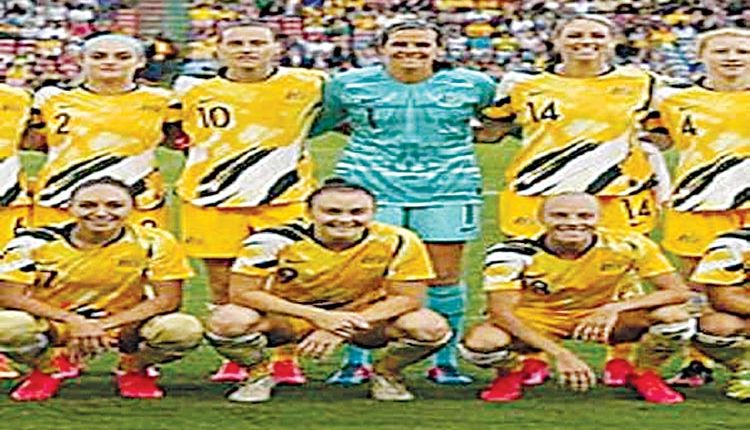Sydney, Aug 14 (Representative) The FIFA Women’s World Cup has had an enormous impact on the Australian football public, with the quarter-final against France becoming the most watched sports event since the Sydney Olympics.Nothing evokes emotions like football, and no event heightens those emotions like a World Cup.Millions of Australians discovered that on Saturday night as the Matildas defeated France in a penalty shoot-out for the ages. Twenty out of the 22 players on the pitch were required to step up for the ultimate test of mettle, the FIFA reported.Australian forward Cortnee Vine could scarcely believe what had happened.Speaking to the media after scoring the match-winning penalty, the look on her face said it all – excitement, relief, and every emotion possible.”It looks like it’s a footballing nation,” she exclaimed. “I think the whole Australian public has really started to become a footballing nation. I think you can tell from tonight that we are, and it’s amazing.”Something special is happening in Australia. This is a country where the sports media cycle is dominated by Australian rules football and rugby league, and where the round ball game is often relegated to an afterthought. But now, in a wave that is building faster than anyone could have imagined, football is the only subject on everyone’s lips.There are tangible numbers that can describe the cut-through of the quarter-final against France. Nearly 50,000 were in the stands at Brisbane Stadium, while 7.2 million people tuned in to watch the match on Seven – the largest figures for an Australian sporting event since Cathy Freeman ran her iconic race at the Sydney 2000 Olympic Games.
The Matildas also occupied the front and back page of every major newspaper in the country.Yet, just as important when understanding the fever-pitch that Australia is reaching are the intangibles. From Tasmania to the Northern Territory, from dedicated live sites to flights 38,000feet in the air, people were tuning in. Fans attending games of different sporting codes packed the concourses of stadiums, desperateto get a glimpse of the penalties.This is the biggest week in Australian football history, and it is being driven by the women’s game. Many point to parallels with John Aloisi’s penalty that helped the Socceroos qualify for the FIFAWorld Cup Germany 2006. This generation of players grew up screaming Aloisi’s name after scoring penalties in the backyard and at school. The next generation will grow up doing the same for Cortnee Vine.The legacy of the FIFA Women’s World Cup 2023 is something that Australia and New Zealand have been contemplating and preparing for from the moment that the bid was won. In a country where rugby union rules, New Zealand have perhaps had an even tougher task for eyeballs than their neighbours, but the sight of a sold-out semi-final between Spain and Sweden will quell any doubts about the engagement of Kiwis in the tournament.For Australia, the historic run by their team – once recognised as the most loved in the country – has fully enraptured the country. Men, women and children, whether they have previously been football fans or not, have been spellbound.“We played a quarter-final against an entire nation,” France coach Herve Renard reflected after their quarter-final defeat.
Watching the videos, seeing the reactions, and hearing the noise in the stands, it is difficult to disagree.Perhaps most exciting is the fact that this is a team with two games still to play. That penalty shoot-out was special, but it could get even bigger. In cafes, on buses, in their workplaces, Australians are wondering out loud: what if we won the whole thing?This is not a country that is used to success in football on the international stage. It is barely used to the global game receiving attention at all. To be so tantalisingly close to the biggest prize in football is mind-blowing. The momentum is building with every game, and one can only imagine the heights it will scale if the Matildas can overcome European champions England on Wednesday.Millions of Australians have experienced for the first time what only a World Cup can give you. The excitement. The nerves. The tension. The explosion of joy, unbridled. The devastation on the other side. It is the reason why the game is played. It is the reason why it is beloved.Matildas goalkeeper Mackenzie Arnold – who made three saves in the shoot-out, and was named VISA Player of the Match – was understandably emotional after the victory.”This is a night that I’m going to remember for the rest of my life. It’s so special to be able to share this with Australia,” she said, through bleary eyes.

